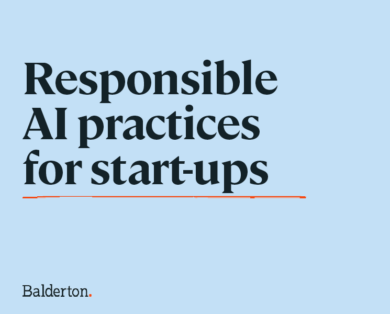- 15 January, 2025
This is the fourth post in a series on the top five mistakes European startups make in US expansion. This post addresses mistake number three: hiring the wrong people.
Hiring is a veritable minefield for European startups expanding to the US. I have heard many CEOs say, “at first we hired the wrong people, it took a while to figure that out, and then we started over – costing us at least a year.” In this post, we’ll dive into the seven ways hiring goes wrong in US expansion and what you can do to prevent these all-too-common mistakes.
- Hiring posers
- Hiring on the cheap
- Hiring people who don’t understand or want the job
- Believing in magic
- Sending too many European transplants
- Failing on DEI
(In addition to my normal reference-style links, I’ll use links to definitions in this post when I think my writing gets too idiomatic.)
Hiring Posers: “These People are Gods”
Europeans tend to create factual and even modest resumes or CVs, while Americans tend towards the opposite. In the US, when it comes to resume embellishment, the question isn’t, “should I” but, “how much?” Failing to understand this can have disastrous consequences on your US hiring.A European startup CEO once told me, “when I first started recruiting in the US, I thought, ‘these people are Gods.'” Only after several quarters did he figure out what was actually happening. Someone unconsciously trained to inflate modest European resumes gets handed a pile of inflated US resumes and then inflates them further.In the US, we are taught to take credit and present business results. So you might see a line on a resume that says:”Implemented a new sales strategy which drove an increase in revenues by 50% to $15M.”On the resume of a sales VP that means one thing, which you can usually take at face value.On the resume of a product marketing manager it means quite another: typically, that they worked at a company while it implemented a new sales strategy and they did their small, product-marketing part to help the company grow revenues by 50%.
- Did they decide to put in the new strategy? No.
- Did they pick the new strategy? No.
- Did they supervise the roll-out of the new strategy? No.
- Did they do anything other than make a few new sales tools? No.
This is one reason why many American companies use behavioral interviewing to assess candidates. By focusing on experiences (e.g., “tell me about a time”) that are relevant to the candidate’s expected future duties, you get a better sense for what the candidate actually did and how they behaved in various situations. For example, I was once interviewing a CFO about the planning and budgeting process, asking questions like:
- Tell me about a time when you ran the annual planning and budgeting process?
- Tell me about the timeline you established?
- How did you pick that series of dates and meetings?
- How did you decide who to invite to which meetings?
While it wasn’t my intent, I quickly determined one thing: the candidate had never run a planning process. The resume had left me with the impression that the candidate had run the whole finance team in their last job, but in reality they were simply a supporting actor. (And this was a last-round interview for this a C-level job!)Here is what you can do to avoid hiring posers as you build your US operation:
- Understand that US resumes are, by European standards, embellished. Learn how to discount them by drilling into experiences and asking about actual responsibilities and accomplishments.
- Hire people with multiple years of experience at name-brand companies. This helps ensure you don’t get sold a great story by someone who, in reality, is a second division player. (You can, if you choose, take risks on people later in your evolution – but not at the start of US expansion.)
- Define a clear set of requirements for a job and interview candidates using behavioural interviewing techniques to establish whether they have the requisite skills and experience.
My broader thoughts on recruiting and interviewing (i.e., those not specific to European startups and US expansion) can be found here.
Hiring On The Cheap
Salaries in the USA generally run much higher than those in Europe. While some of the gap is closed from a cost perspective by larger European employer social contributions, there nevertheless typically remains a significant delta between US and European salaries.
I know of early-stage startups where the first US employees were making more than the existing executive staff members in Europe. While this is certainly awkward, the executive staff will have much more equity in the company and the appropriate benchmark should be against their position in their local market. The question is not what your French finance director makes compared to a US seller, but compared to other French finance directors at similar companies.
If you’re new to this problem, adjustment can be difficult and you may hear surprised statements from your European finance and HR leaders. There is however only one answer: you need to base pay on local market conditions, even if it leads to results that some people do not like or understand. After explaining that principle a few times, you may need to tell the disgruntled: “if you want to get paid like a US seller, move to the USA and take a US sales job.”
The mistake, of course, is to yield to your own feelings and/or pressure from your European leaders to hire on the cheap in the USA. Instead of hiring a senior seller from Salesforce to sell your call center application, you hire a junior one from a no-name company instead. This frequently leads to disaster. You end up with a weak, underperforming US operation who will likely blame you for their shoddy performance because, “the company doesn’t understand the US market.”Perversely, at one level, they’ll be right. The company didn’t understand the US labor market which is why it hired them in the first place. The result: you blow it up and start over, with years lost and millions wasted. All to save some money. Penny wise, pound foolish.
To avoid hiring on the cheap:
- Commit to paying local market prices for employees and do so, paraphrasing a fishing maxim, no matter how weird it gets.
- Do not drop the bar on qualifications in order to hire more affordable candidates. Think: day-old sushi and factory-second parachutes are cheap, too.
- Find candidates with the same profile as your successful European staff. If your typical enterprise seller in France has 10 years experience with 5 of them at a leading CRM vendor, find that same profile in the US. Then find out what they cost.
- Ask recruiters the market price for desired profiles. They generally had a good idea of what people cost in the market, if not a certain tendency to round up their answers.
- Use market data. Your VCs may have compensation databases. Or you can buy benchmark data using services like Opencomp, Option Impact, Carta Total Comp, or Glassdoor.
Hiring People Who Don’t Want or Understand the Job
While this is generally not a problem for rank-and-file positions, in leadership roles there is sometimes confusion about the scope of a job.
For example, when an early-stage US company hires a VP of Marketing in San Francisco that job is assumed to be worldwide in scope. Same for a VP of Sales, ironically, even when the new-hire may speak no additional languages or have any prior international experience. In fact, they may not even have a passport, but it’s simply assumed that the VP of Sales is the VP of (Worldwide) Sales. While the distinction is moot in the early days of US startup, for a European one expanding into the US, it is not.
When a French company hires, for example, a VP of Marketing in the US, it needs to be clear about the scope. Will the person run branding and corporate communications? Drive product launches? Will they be VP of (Worldwide) Marketing or VP of US Marketing – exactly akin to a VP of European marketing in a US company, a role more focused on demand generation and local events? By the way, few American marketing VPs have any experience as a regional marketing leader so they may not understand the job. By contrast, most French country marketing VPs have only done that job. Very few leaders have done a US general manager (GM) role, because most American companies don’t have one.
If you get this wrong, here is what it sounds like:
- “The US VP of marketing is briefing analysts about an upcoming product launch, when the European chief product officer thinks that’s their job.”
- “The US VP of sales is telling sales directors in Europe what sales process to use and that’s not their job.”
- “The US VP of Marketing just quit, saying if they’d known that all the company wanted was demandgen, they’d never have taken the job.”
The point here is simple. To avoid problems driven by the definition of the role itself:
- When creating the spec and starting the search, consider and answer all important questions about the role and how it interacts with peers and counterparts in Europe.
- Remember that Americans by default assume worldwide scope, so if you say nothing, they will assume they are the worldwide functional leader.
- Clearly communicate job duties if you are trying to recruit a regional leader, remembering that, unlike Europe, education will be required to explain the role.
Believing in Magic
Sometimes founders convince themselves that one magic hire can change everything. That hiring a magic VP of Sales will fix all their go-to-market (GTM) problems. Or that hiring a magic VP of Marketing will produce messaging that casts a buying spell over customers. Or that hiring magic versions of either will mean that the founder doesn’t need to bother themselves with learning about sales, marketing, competition, and why and how customers buy. They can simply delegate GTM and resume a peaceful, product-focused life.
When framed in this stark light, these beliefs are obviously false, but in my experience many founders nevertheless, deep down, want to believe in magic and still somewhat secretly hope that one big hire can change everything.
Sadly, this often leads to an overhire – e.g., hiring the VP of Sales you need three years from now, instead of the one you need today. That usually results in the new hire quitting about 12 months later. Think: “you guys are great but there are still too many things that aren’t in place and I made a mistake by joining you too early.” This, particularly after having hyped the new person as the magic answer to all the company’s problems, can have a devastating effect on morale. Not only does the Great Hope quit, but they take most of the good people they brought with them.It can also lead to hiring a poser – someone who sells themselves as magic, talking a good game about how easy the company’s problems are and how quickly they’re going to fix them – but with the same sad result: flaming out in a year and leaving behind a damaged organization. The big difference between an overhire and a poser is that employees are typically bittersweet about the overhire’s departure and ecstatic about the poser’s.
To balance this, a great VP of sales or marketing can make a big difference to your company. But they cannot do magic. They cannot compensate for a lack of market demand for your product, a product that doesn’t work, or a product that is materially inferior to alternatives offered by your competition. They also cannot relieve founders of their duty to understand sales, marketing, success, competition, and product.
In order to avoid the magical hire trap, do the following:
- Make a realistic list of what the VP will do over the next 12-18 months. Typically, for an early-stage VP of Sales, that includes hiring sellers, supporting them on sales calls, defining deal strategy, and defining a basic sales process. Be sure you are hiring the VP you need now, not the one you need in three years.
- Beware candidates who make things sound too easy during the interview process. They’re not showing adequate respect for your challenges and are likely just repeating plays from other companies that may or may not be relevant to your situation. Prefer candidates who listen closely, trying to understand the company and its situation before prescribing actions.
- Similarly, avoid hiring candidates who emphasize experience (“been there, done that“) over application. That is, avoid the ones who tell you how long they’ve done something in favor of those who can explain why they do something and what alternatives they considered before doing it.
Sending too Many European Transplants
Some European startups end up staffing their US operation with too many expatriates from their home country. They might relocate a handful of Europeans to the US headquarters and then compound that by hiring home-country expatriates who are already resident there.Sure, it’s fun because you’ll serve home-country food at the company’s Friday lunches and play home-country music at company parties. Employees who are parents might become friends outside of work because their kids all attend the same home-country school. Heck, you might even hire some additional expatriates via the school’s parent network.But when you do this, you’re not creating a US operation. You’re creating a home-country outpost.The problems with this are:
- You’re failing to leverage the networks and experience of local people who have worked in-market for years
- You’re giving the impression that it’s a European company and if you want to be a true insider there you need to be from the home country and speak the home language.
- You’re potentially scaring off both potential employees and customers. To a buyer, European means risk. Why shove it in their faces?
- You’re investing in a model that will not scale. You will run out of qualified expats at some point.
- You’re likely dropping the quality and experience bar in order to hire people who feel comfortable. I’ve seen woefully under-qualified candidates from the home country in huge roles in the US simply, it seems, because they’re smart and from the home country. Do better.
- You’re building a revolving-door operation. Most expats last 2-4 years and then return to their home country, so it’s hard to build things that are more than transitory.
The answer here is simple:
- Relocate a founder to the US if at all possible during your expansion
- Potentially send one or at most two other expatriates with them if you desire.
- Hire local for the rest of your US employee base. Remember, the point of hiring local is to gain local talent with local expertise and relationships.
- Avoid hiring home-country expatriates who have only been in the US for a year or two. You’re not getting the benefit of local knowledge and relationships.
- Never drop the quality and experience bar to hire a home-country person. In fact, as a check on yourself, you should raise it.
Failing on DEI
Diversity, equity and inclusion is an important topic and for good reason. For more information on Balderton’s views on DEI, and more generally, on ESG, see the Balderton Sustainable Future Goals and the first annual progress report on them.In this post, we are looking at DEI in the context of a European startup expanding into the US. While Silicon Valley itself has a long way to go on DEI, European startups expanding into the USA should focus on these things:
- Be aware that DEI in the US might not mean the same thing as it does in your home country. Definitions and norms are likely different.
- Founders should familiarize themselves with DEI as applied to startups
- Build DEI in from the start. Don’t make it something you worry about later.
- Start a DEI training program, and take it yourself.
You might ask yourself if this matters when you’re just starting to expand your company into the US. The answer is: yes, it does.
- Employees care. Anyone you want to hire is almost certainly going to look at the biographies on your leadership page and look for your values on your website. What they see may well determine if they want to work at your company.
- Customers care. Your customers likely care if your company has a commitment to DEI and will judge that both by the people they interact with and the inclusiveness of your marketing and website.
- Investors care. While VC has a long way to go, VCs care about DEI for many reasons, one of which being that their customers care. Most of the funds that VCs manage come from foundations and family offices that increasingly care about DEI, both at the VC firm-level and the portfolio-company level.
Take DEI seriously from the start and you won’t regret it.
Conclusion
In this post, I’ve covered the seven types of hiring mistakes European startups make in US expansion and I’ve offered sets of actions to help ensure that your company hires the right people, the first time.
In the next post in this series, we’ll dive into mistake number four, underestimating the importance of sales and marketing.
 DAVE KELLOGG
DAVE KELLOGG 












